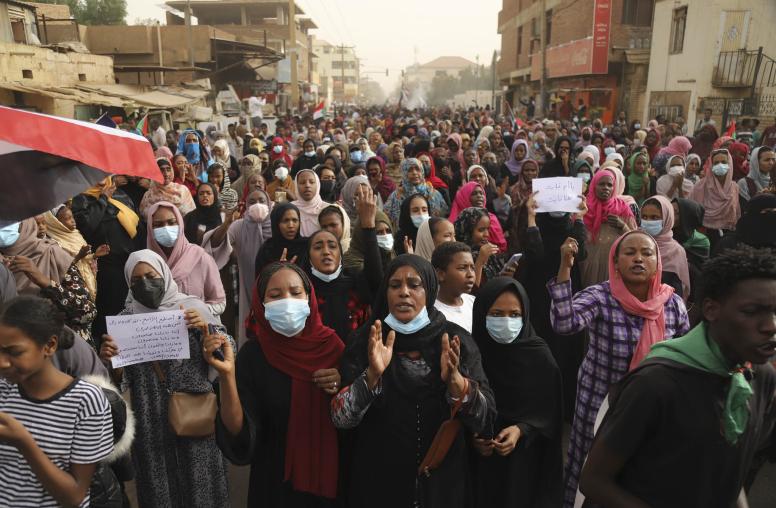People Power in a Pandemic
How Movements are Confronting COVID
How can nonviolent movements maintain momentum when the COVID-19 pandemic makes protesting on the streets a threat to the health and safety of their members? Coronavirus has presented major challenges for activists and nonviolent movements around the world who are working to advance peace and justice. From Hong Kong to Algeria, activists and peacebuilders are confronting the need to innovate tactically and adapt their strategies amid national lockdown orders, social distancing, and other measures intended to curb the spread of the coronavirus.
On May 19, USIP hosted activists and peacebuilders from South Sudan, Syria, and Venezuela for a discussion on how nonviolent movements are confronting and adjusting to their new operating environments, how they are spreading awareness about the virus and safety measures in their communities, and how they envision the post-coronavirus era in their societies.
The panelists also shared how they maintain resilience against repression and use opportunities created by the pandemic to advance their demands for peace and justice. The discussion also includes external actors offering insights into how international donors can provide support to grassroots groups and movements in ways that help them to respond flexibly to their changing environments and to better meet the needs of their communities.
Speakers
Maria Stephan
Director, Nonviolent Action, U.S. Institute of Peace
Nelson Kwaje
Director of Programs, #DEFYHATENOW
Rajaa Altalli
Co-founder and Co-director, Center for Civil Society and Democracy
Alba Purroy
Social Activist; Nonviolent Action and Peacebuilding Trainer
Michael Silberman
Global Director, Mobilisation Lab
Katherine Zavala
Director of Grassroots Partnerships, Thousand Currents


